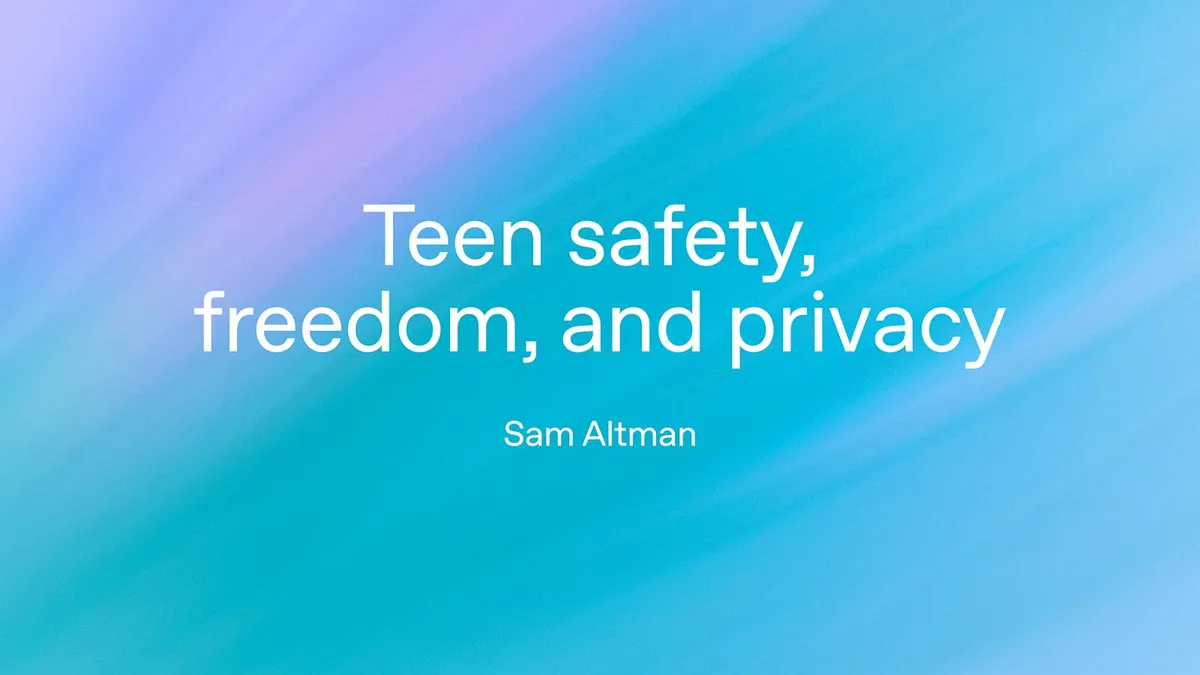
In today’s rapidly evolving digital landscape, the intersection of teen safety, freedom, and privacy poses significant challenges. As a company dedicated to the ethical use of AI, we find ourselves navigating complex decisions regarding these principles. It is paramount for us, and indeed society as a whole, to safeguard the right to privacy in AI interactions. Unlike previous generations of technology, conversations with AI often delve into personal matters, making them some of the most sensitive discussions individuals have.
When individuals confide in AI about personal issues, they deserve the same level of confidentiality that one would expect when speaking with a doctor or a lawyer. We firmly believe that information shared with AI should be privileged and protected at higher levels, akin to traditional confidentiality standards. As advocates for user privacy, we are actively engaging with policymakers to ensure that these protections are recognized and upheld.
To further enhance user privacy, we are developing advanced security features that ensure your data remains private, even from our own employees. However, similar to other privileges, certain exceptions must be made. Automated systems will monitor for potential serious misuse, and critical risks—such as threats to life, plans to harm others, or large-scale cybersecurity incidents—may be escalated for human review.
Another core principle guiding our decisions is freedom. We believe in empowering users to interact with our tools as they see fit, provided they operate within broad safety guidelines. Over time, we have been working diligently to enhance user freedom as our AI models become increasingly steerable. For instance, while our model's default behavior may not encourage flirtation, it should be able to accommodate adult users who request such interactions.
However, the balance between freedom and safety becomes more complex in sensitive contexts. For example, while our AI will not provide instructions on committing suicide, it should assist an adult user in writing a fictional story that includes this theme. Internally, we refer to this approach as “treating our adult users like adults,” allowing for a high degree of freedom while ensuring that harm is neither caused nor facilitated.
When it comes to teen users, our priority shifts towards safety, placing it above privacy and freedom. We recognize that this powerful technology can pose risks to minors, and therefore, we believe significant protective measures are necessary. First and foremost, we aim to differentiate between users under 18 and those who are older. Our platform, ChatGPT, is intended for individuals aged 13 and above, and we are currently developing an age-prediction system that estimates user age based on interaction patterns.
In situations where there is uncertainty regarding a user's age, we will err on the side of caution and default to the under-18 experience. In some regions, we may also request identification, which we acknowledge is a privacy compromise for adults but consider a necessary tradeoff for the safety of younger users.
Furthermore, the rules governing teen users will differ significantly. For example, ChatGPT will not engage in flirtatious conversations or discussions around suicide or self-harm, even in creative writing contexts. In cases where an under-18 user exhibits suicidal ideation, we will make every effort to contact their parents or, if necessary, notify authorities to prevent imminent harm.
We understand that our principles can sometimes conflict, and not everyone will agree with our approach to resolving these tensions. These decisions are complex and challenging, but after extensive consultation with experts, we believe we are acting in the best interest of our users. We are committed to transparency regarding our intentions and the measures we are taking to protect privacy, freedom, and safety within the realm of AI.